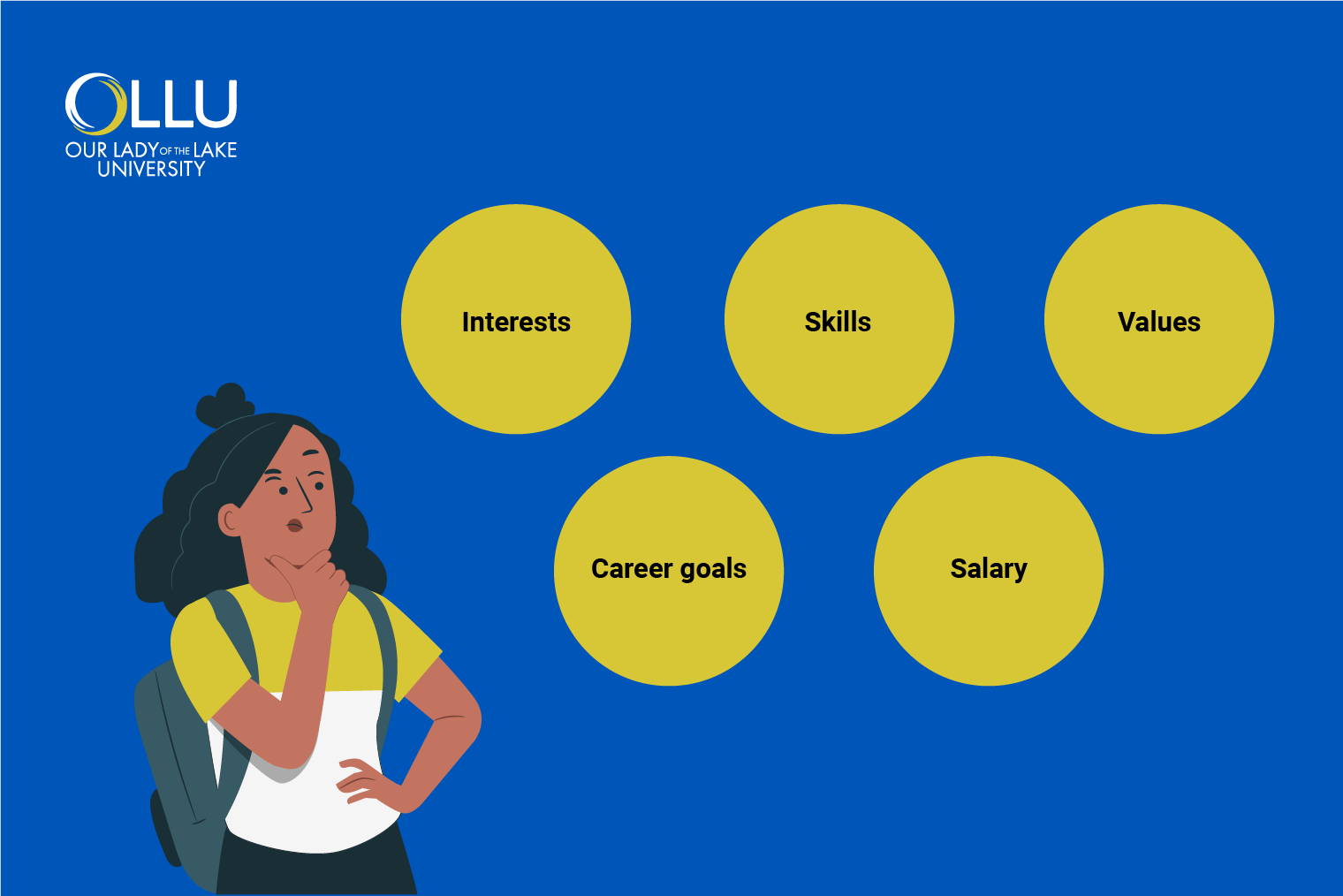Master’s in Psychology Jobs: Career Opportunities and Pathways
Jun 20, 2024

Are you thinking of advancing your skills in psychology? A master's degree not only
offers unique qualities but it also opens up a world of career opportunities and pathways.
With the growing demand for mental health professionals and the versatility of this degree, you can find fulfilling roles that make a positive impact on individuals and communities.
In this blog post, we will look at the top masters in psychology jobs and explore the requirements, daily duties, and salary expectations. Whether you're interested in clinical practice, research, or administrative roles, this degree provides a strong foundation for a rewarding and diverse career.
10 Jobs You Can Get With a Masters in Psychology
Earning a master's degree in psychology opens the door to a variety of rewarding careers. Here are 10 jobs you can pursue with this advanced degree, each offering unique opportunities to make a positive impact in different fields.
1. Educational Psychologist
Educational psychologists focus on how people learn and develop in academic settings. They work with students, teachers, and parents to address learning difficulties, emotional issues, and behavioral problems. Schools, universities, and research institutions are among the main places where educational psychologists work.
To become an educational psychologist, one needs a master's degree in psychology, with additional certifications or licenses required in many states. Career advancement can lead to senior psychologist roles or administrative positions. Their work significantly impacts individuals by improving learning outcomes and fostering a supportive educational environment, benefiting society by enhancing the overall quality of education.
2. School Psychologist
School psychologists support students' mental health and educational development. Their work positively impacts individuals by addressing mental health issues and promoting academic success. Typically, school psychologists assess and counsel students, develop intervention plans, and collaborate with educators and parents to create supportive learning environments, which is crucial for productive learning. Required qualifications include a master's degree in psychology or a school psychology degree, along with relevant state certifications or licenses.
School psychologists work in public or private schools, but some may work in district offices or private practice, and the annual salary is $84,940 but it also depends on the expertise. Career advancement can lead to roles such as lead psychologist or district-level administrator.
3. Clinical Psychologist
Another job you can try with a master’s in psychology is becoming a clinical psychologist. These professionals help people manage mental health issues like depression, anxiety, and stress. They do this by providing therapy, conducting assessments, and creating treatment plans. It is a rewarding career through which you can secure a good income, up to $96,100 per year.
Clinical psychologists work in hospitals, clinics, private practices, or schools. Their work improves individuals' mental well-being and reduces mental health problems, benefiting society by creating healthier communities and reducing the stigma associated with mental health issues. With career advancements, you can also take senior clinical roles or administrative positions.
4. Mental Health Therapist
Mental health therapists help people with emotional and mental problems, typically through counseling sessions. They provide support for a variety of conditions including depression, trauma, grief and eating disorders. Creating treatment plans and teaching coping strategies are among the main tasks of a mental health therapist.
Therapists work in hospitals, clinics, or private practices. With experience, they can move into supervisory or specialized roles. With mental health issues taking a toll on people, therapists are at the frontline, helping individuals manage stress and enhance the overall quality of life, which contributes to healthier and more supportive communities.
5. Licensed Marriage and Family Therapist (LMFT)
Becoming a Licensed Marriage and Family Therapist (LMFT) is an incredible accomplishment. In this role, you help couples and families resolve conflicts and improve relationships while working in clinics, counseling centers, or private practice. It is an emotionally rewarding career as you get to see directly how your services and efforts impact clients’ lives.
Besides the educational requirements, becoming an LMFT requires state licensure. Obtaining licensure is what divides LMFTs from MFTs (Marriage and Family Therapist) and can lead to a better salary. The opportunities for further advancement are vast, and typically include workshops, seminars, and additional certifications.
6. Substance Abuse Counselor
Substance abuse counselors help people struggling with drug or alcohol addiction. They provide support, develop recovery plans, and teach coping skills to overcome addiction. Their role is crucial in society because they help individuals regain control of their lives, which reduces crime and improves community health.
As a substance abuse counselor, you may find yourself working in rehabilitation centers, hospitals, and private practices, and the salary depends heavily on the industry you choose to work in. Working in a hospital is the most profitable, with a yearly income of $59,090 on average, whereas substance abuse facilities offer $46,880, which marks the lowest salary for this role.
7. Forensic Psychologist
With a master’s degree in psychology, one can also become a forensic psychologist. Much like the name suggests, these professionals apply psychology to legal issues, often working with law enforcement and the legal system. Working with attorney officials, they conduct assessments, provide expert testimony, and develop offender profiles. Courts, prisons, or law enforcement agencies are among the main working environments this career can lead to. Senior forensic roles or academic positions are also possible with career advancement through training or workshops. Their work helps ensure justice, improve legal processes, and contribute to a fairer society by providing psychological insights into legal contexts.
8. Human Resources Specialist
Human Resources (HR) specialists manage employee relations, recruitment, and organizational development. A master’s degree in psychology can help with this role as it provides a deep understanding of human behavior, motivation, and interpersonal dynamics. An HR specialist’s daily tasks include hiring new employees, handling employee concerns, and ensuring company policies are followed.
The average salary for an HR specialist is $67,650 per year, but also depends on the workplace. They work in offices, often within corporations, government agencies, or non-profits, which can impact the income. HR specialists are important because they ensure a positive work environment, resolve conflicts, and help employees succeed. Their work improves employee satisfaction and productivity, making organizations run more smoothly and effectively.
9. Industrial-Organizational Psychologist
Industrial-Organizational (I-O) psychologists study workplace behavior to improve employee performance and well-being, similar to an HR specialist. However, I-O psychologists have different approaches. Working in corporate offices, government agencies, or as consultants, their daily tasks include conducting research, developing training programs, and advising management on best practices. This is one of the most profitable careers in the realm of psychology, as it provides a $147,420 average yearly income.
To become an I-O psychologist, you need a master’s or doctoral degree in psychology with a focus on industrial-organizational psychology. I-O psychologists are important because they enhance workplace efficiency, boost employee satisfaction, and help create better work environments. Their work leads to more productive organizations and happier employees, benefiting both businesses and society.
10. Behavioral Therapist
Last but not least, behavioral therapists, who provide support to individuals showing signs of harmful behavior. It’s all about understanding human nature and empathizing with those who struggle with their mental health, all qualities that a master’s in psychology can offer. As such, behavioral therapists work with clients to develop coping strategies and improve their overall mental health and well-being through therapy. With tasks such as conducting therapy sessions, creating treatment plans, and tracking progress, behavioral therapists typically can be found in hospitals, clinics, schools, or private practices.
Which Job Should I Choose?

Having too many career options to choose from can sure be overwhelming. But if you're
considering a career in psychology, it’s best to think about your interests, skills,
values, salary expectations and career goals before making the ultimate decision.
Ask yourself what topics in psychology excite you the most. Do you enjoy helping people one-on-one, working in groups, or conducting research? This way, you can break down your choices based on your preference. Your skills matter too—strong communication, empathy, and problem-solving abilities are essential in this field. So, consider your values; do you want to make a direct impact on individuals' lives, contribute to scientific knowledge, or improve workplace dynamics?
It’s also important to research each career option by reading job descriptions, talking to professionals in the field, and seeking internships or volunteer opportunities. Look into educational requirements and licensure for each role. Consider the job outlook and salary to ensure your chosen path meets your long-term goals.
Finally, reflect on your career goals—whether you want to become a therapist, counselor, researcher, or HR specialist—and choose a path that aligns with your passions and strengths.
Conclusion
From therapy and counseling to research and human resources roles, a master's degree in psychology opens up versatile career opportunities. The secret lies in the skills it offers, such as communication, empathy, and a deep understanding of human behavior, which can take you far.
Before choosing a path in psychology, remember to explore your interests, skills, and values. With many rewarding careers available, take proactive steps to research and pursue your options. This will help you build a fulfilling and impactful career in the diverse and dynamic field of psychology.
Frequently Asked Questions (FAQs):
How does a master's degree in psychology differ from other levels of education in terms of career opportunities?
A master's degree in psychology offers advanced career opportunities compared to a bachelor's, such as higher-level clinical roles, specialized therapy positions, and leadership roles in research and organizational settings.
What skills are typically developed or emphasized in a master's program in psychology that are valuable in the workplace?
In a master's program in psychology, skills like advanced research methodologies, clinical assessment techniques, and enhanced communication and problem-solving abilities are emphasized, which are valuable in various professional environments.
What are some alternative career paths for individuals with a master's in psychology outside traditional clinical or counseling roles?
Alternative career paths for individuals with a master's in psychology include human resources specialist, industrial-organizational psychologist, market researcher, and academic advisor, offering diverse opportunities outside traditional clinical or counseling roles.